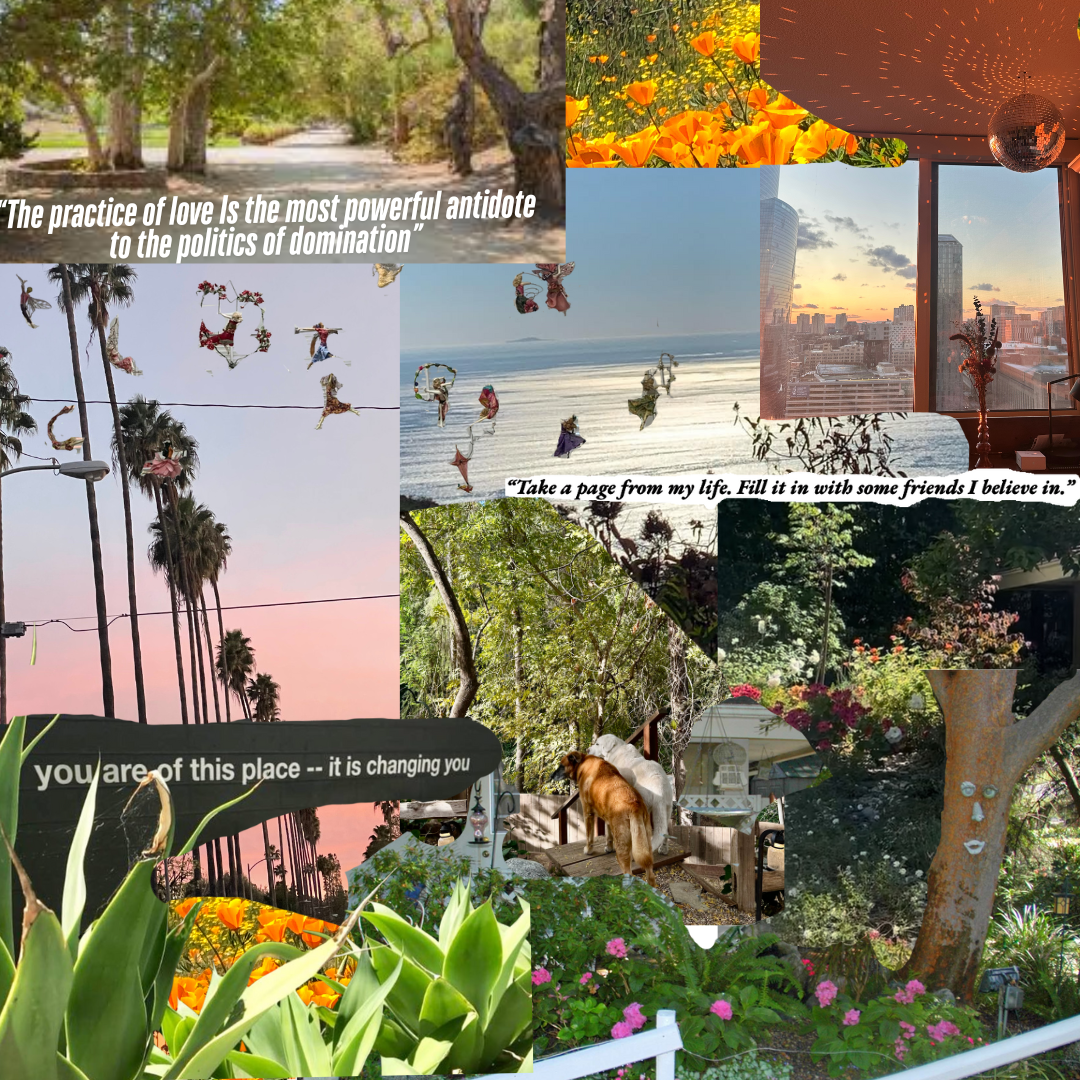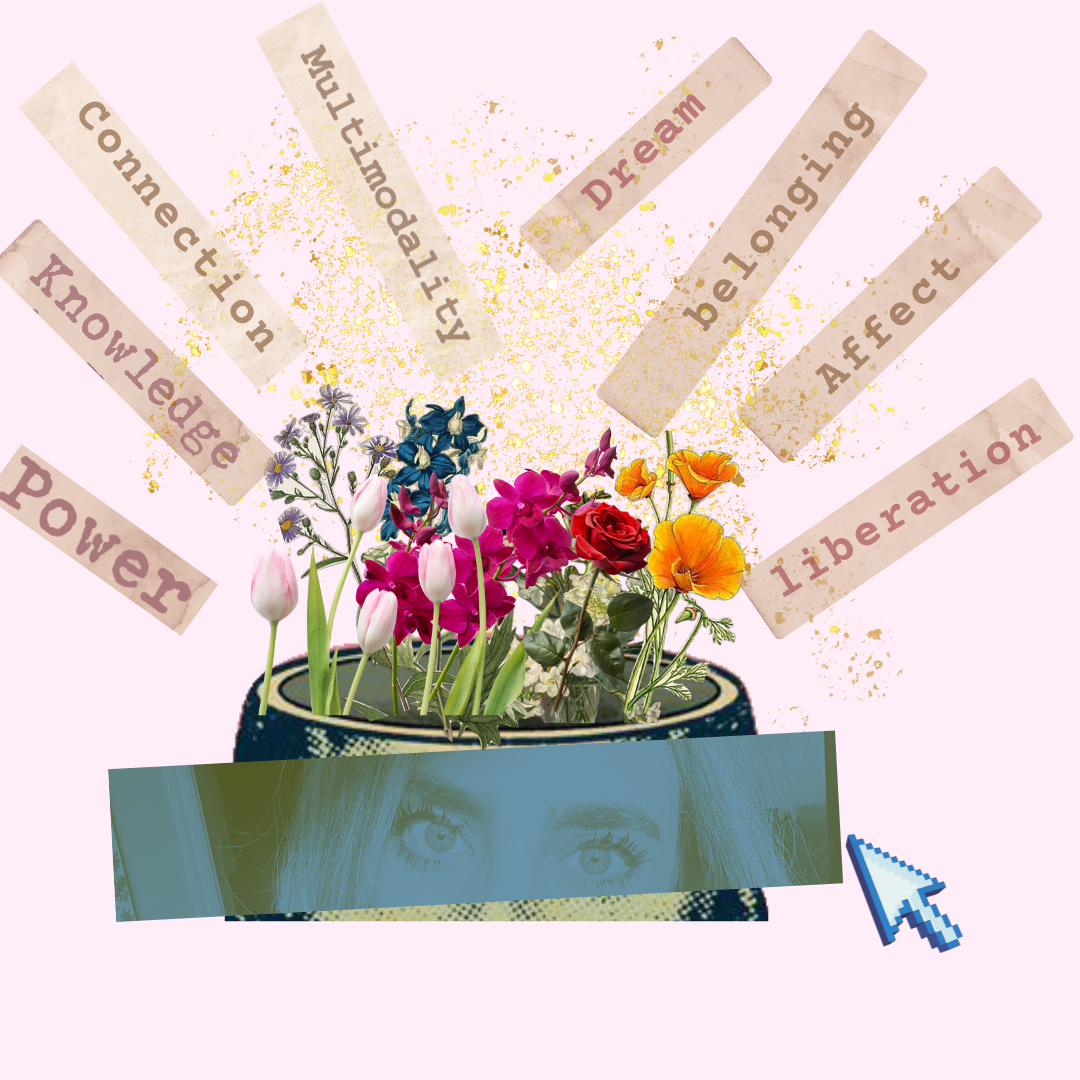Essays
This section is a collection of three essays that frame my scholarship. Each stands alone, but engages in dialogue with one another.
Reflective Essay
(Re) Imagining Knowledge Production: Navigating Communities of Connection
This essay begins with a personal reflection on the destabilizing moment facing American society today, exploring the tension I feel between maintaining hope and grappling with despair. There is a sense of disenfranchisement and a lack of agency in the face of political decisions that are harmful to wide swaths of people. I provide context about my upbringing and the formation of my personal convictions, emphasizing the transformative power of storytelling to make histories and news accessible, inclusive, and multifaceted. The use of multimodal tools and digital ecosystems is highlighted as a means to challenge oppressive systems, amplify marginalized voices, and encourage critical engagement with knowledge. Through this lens, the essay invites you, as educators, media, scholars, and community organizers, to reflect on your own agency and role as a digital citizen, and to explore how you can contribute to building a more equitable and liberatory society.
Conceptual framework
Knowledge Under Attack: Multimodality and Discourse as Fields of Resistance
This essay critically examines how knowledge, power, and resistance intersect, with a focus on multimodal scholarship and digital literacies as tools to challenge oppressive educational and socio-political narratives. It explores the dual role of knowledge as both a mechanism of domination and a pathway to liberation, particularly for marginalized communities whose histories and identities have been systematically erased.
Grounded in feminist epistemologies and Critical Race Theory, this paper unpacks how dominant power structures manipulate knowledge by prioritizing elite perspectives while silencing other contrary and diverse voices. Multimodal storytelling and digital media offer critical spaces to reclaim these suppressed narratives, foster resistance against censorship and erasure in a politically charged environment. Entire communities face denial of their existence.
Through digital literacies and multimodal approaches, the paper envisions reshaping social narratives to challenge established power dynamics. By transcending the dominance of text-based knowledge, multimodal scholarship makes knowledge more accessible, participatory, and inclusive and provides a platform for diverse stories to reshape norms, creating a more equitable and inclusive education system, and society. Ultimately, the paper underscores knowledge as both a weapon of oppression and a tool of resistance, calling for collective action to amplify marginalized voices and dismantle exclusionary systems.
Community Recommendations
Transforming Knowledge Systems: Bridging Divides in Digital Ecosystems
This paper advocates for transforming knowledge systems to advance social change by centering lived experiences, legitimizing diverse forms of knowledge, and fostering collective storytelling through digital media. The paper offers four key recommendations: (1) building inclusive in digital ecosystems; (2) promoting critical epistemic literacies as a tool for civic responsibility; (3) embracing multimodal knowledge production, such as film and oral histories, to increase accessibility; and (4) eliminating news site paywalls to ensure equitable information access. Together, these recommendations have potential to dismantle entrenched power structures and reimagine a digital landscape where knowledge is accessible, collaborative, and rooted in shared humanity.




